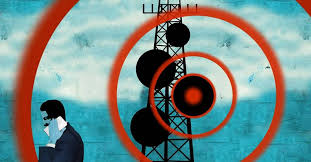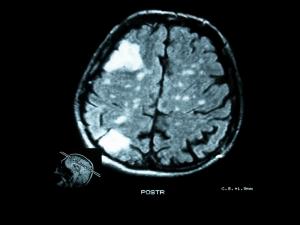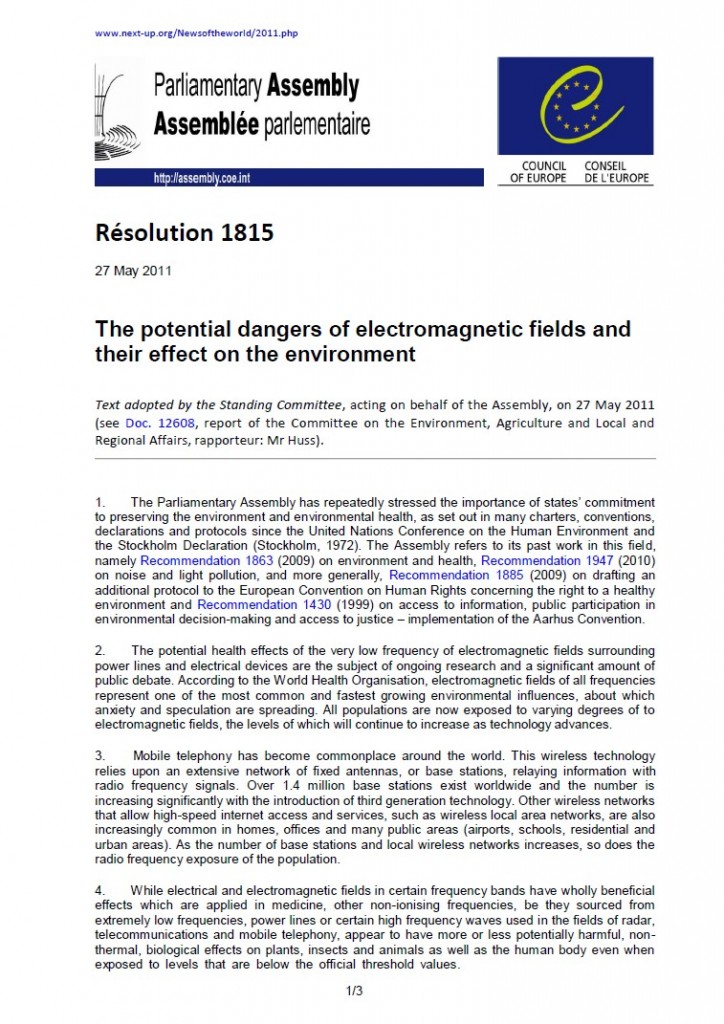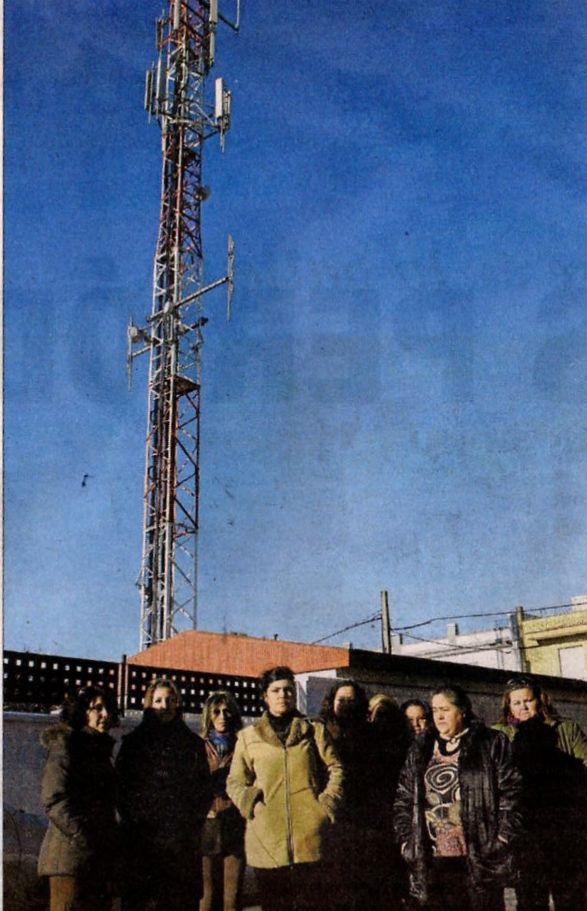Portada del sitio > Prensa > Cellphones and brain tumors: Report revives nagging questions
Los Ángeles Times, 9/9/09

Cellphones and brain tumors: Report revives nagging questions
Miércoles 9 de septiembre de 2009 · 1026 lecturas
Cellphones and brain tumors: Report revives nagging questions
A group called the International EMF Collaborative has issued a report warning that regular use of cellphones can result in a significant risk of brain tumors. Above, a motorist uses a handset last year, before such devices were banned while driving. (Don Bartletti / Los Angeles Times / June 30, 2008)
David Lazarus
Do you worry about cellphone radiation?
No. The wireless industry says it’s not a problem.
Sometimes, but I’m not sure if it’s really a concern.
Yes. I don’t want a brain tumor.
The wireless industry has been telling us for years that cellphones don’t cause brain cancer, but a new study raises doubts.
By David Lazarus
September 9, 2009
People have been asking for years whether cellphones can give you a brain tumor. And for years, the wireless industry has been telling us not to worry our pretty heads.
So that’s settled, right? Maybe not.
A group called the International EMF Collaborative issued a report the other day warning that cellphones may be more dangerous than users have been led to believe by health authorities.
The report, titled "Cellphones and Brain Tumors: 15 Reasons for Concern," says the latest research indicates that regular use of cellphones can result in a "significant" risk of brain tumors.
It also says kids are at greater risk than adults because their still-developing brain cells are more vulnerable to electromagnetic radiation.
"Cellphones are causing brain tumors," the lead author of the report, Lloyd Morgan, told me. "Industry-backed studies try to hide that fact. But if you read them carefully, you can see there are risks."
The potential risks of cellphone use have been debated for years. A number of reputable organizations, including the World Health Organization and the National Cancer Institute, say there’s no conclusive evidence that using a cellphone is harmful to your health.
But many consumer advocates, along with health officials around the world, say the jury’s still out.
They say more data are needed and are awaiting the results of a long-delayed, 13-nation study begun almost a decade ago that was intended to settle the matter of cellphone safety once and for all.
That study, dubbed Interphone, has been held up for years by squabbling among researchers over how to interpret the data. Some say the findings show a clear link between long-term cellphone use and brain tumors. Others say no such link is evident.
The $24-million Interphone study was funded in part by the wireless industry, which some say has been pressuring researchers to soft-pedal some of the report’s more troublesome findings, such as indications that using a cellphone for more than 10 years may increase your cancer risk.
The National Cancer Institute says incidence and mortality rates for brain cancer have remained relatively steady for the last decade. But according to the Illinois-based Central Brain Tumor Registry of the United States, the leading database of brain cancer cases, there has been an increase in some types of tumors.
Carol Kruchko, president of the nonprofit registry, said scientists are still trying to determine the reason for the increase. She said the question of whether cellphones may be to blame is "controversial" and that more research is necessary.
CTIA — the Wireless Assn., a U.S. industry group, insists that cellphones pose no danger to users.
"The peer-reviewed scientific evidence has overwhelmingly indicated that wireless devices do not pose a public health risk," said John Walls, a spokesman for the association. "In addition, there is no known mechanism for microwave energy within the limits established by the FCC to cause any adverse health effects."
But Morgan, 67, a retired electronics engineer living in Berkeley, scoffed at this position.
"What does ’no known mechanism’ imply?" he asked. "That’s an anti-scientific statement on its face. All it means is that we don’t know."
Morgan is a member of the Bioelectromagnetics Society, an organization of scientists and engineers who focus on the effects of electromagnetic fields. He described the International EMF Collaborative as a collection of advocacy groups concerned about electromagnetic radiation.
More than 40 scientists and officials from 14 countries have publicly endorsed the findings of Morgan’s report. They include David O. Carpenter, director of the Institute for Health and Environment at the University at Albany; Jerry L. Phillips, director of the Science Learning Center at the University of Colorado at Colorado Springs; and Dr. Ronald Herberman, director emeritus of the University of Pittsburgh Cancer Institute.
Herberman sent a memo to his staff last year urging them to limit cellphone use and to keep handsets away from their heads whenever possible.
Morgan said the wireless industry and cellphone-danger skeptics base their claims on research showing that radiation emitted by handsets is too weak to heat the tissue in your head and cause tumors to form.
"But what about non-thermal, biological effects resulting from electromagnetic radiation?" he asked.
Morgan pointed out that electromagnetic fields are routinely used to repair bone fractures. Like cellphone radiation, these fields are too weak to heat tissue.
"That tells you that there is also a non-thermal, biological effect from this energy," Morgan said.
The National Cancer Institute seems to acknowledge this possibility when it says on its website that "more research is needed to determine what effects, if any, low-level non-ionizing RF [radio frequency] energy has on the body and whether it poses a health danger."
Similarly, the World Health Organization says that "there are gaps in knowledge that have been identified for further research to better assess health risks."
Many nations that participated in the Interphone study have released individual reports with their own findings.
One conclusion consistent with nearly every report is that there is indeed a higher risk of brain tumors for people who use a cellphone for at least 10 years and who typically hold the device on the same side of their head.
For Morgan, that finding alone is sufficient to raise a red flag.
"That means cellphones are causing brain tumors," he said. "End of story."
Critics of that conclusion say more time is needed to see if this is indeed the case or some odd statistical quirk. They also say the national reports still must be correlated to determine whether the findings hold up on a global basis.
Morgan challenges the validity of many of the Interphone study’s reported findings. The one he’s wariest of is an indication that in some cases radiation from cellphones may actually protect users from brain tumors.
"There are only two possibilities," Morgan said. "One is that it’s true. The other is that the study is deeply flawed."
Most independent researchers, he said, find it ridiculous to think that holding a radiation-emitting device to the side of your head can ward off brain cancer.
"And if it’s true," Morgan added, "why doesn’t the cellphone industry promote that finding?"
At this point, the one thing we know for sure about the potential danger of cellphones is that no one knows for sure about the potential danger of cellphones.
Morgan told me he doesn’t think the world’s 4 billion cellphones will be banned any time soon — they’re too convenient. But he thinks speakers should be removed from handsets, requiring people to listen through earplugs and thus keep the phone away from their head.
Morgan also would borrow from cigarette packs and include a warning on all cellphones that long-term use can be hazardous to your health.
"Not everyone who smokes three packs a day gets lung cancer," he said. "Not everyone who uses a cellphone will get brain cancer. But everyone who does is at higher risk."
It’s a compelling argument. And so far, no one can say with certainty that he’s wrong.
David Lazarus’ column runs Wednesdays and Sundays. Send your tips or feedback to david.lazarus@latimes.com.
latimes.com /lazarus/tumor
Poll
Do you worry about cellphone radiation?
Ver la noticia original AQUÍ







